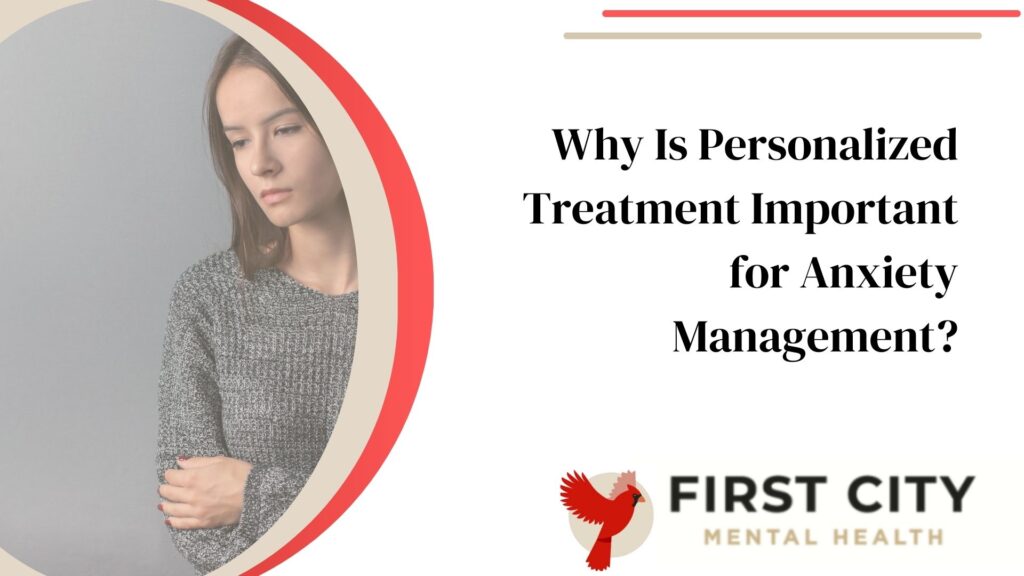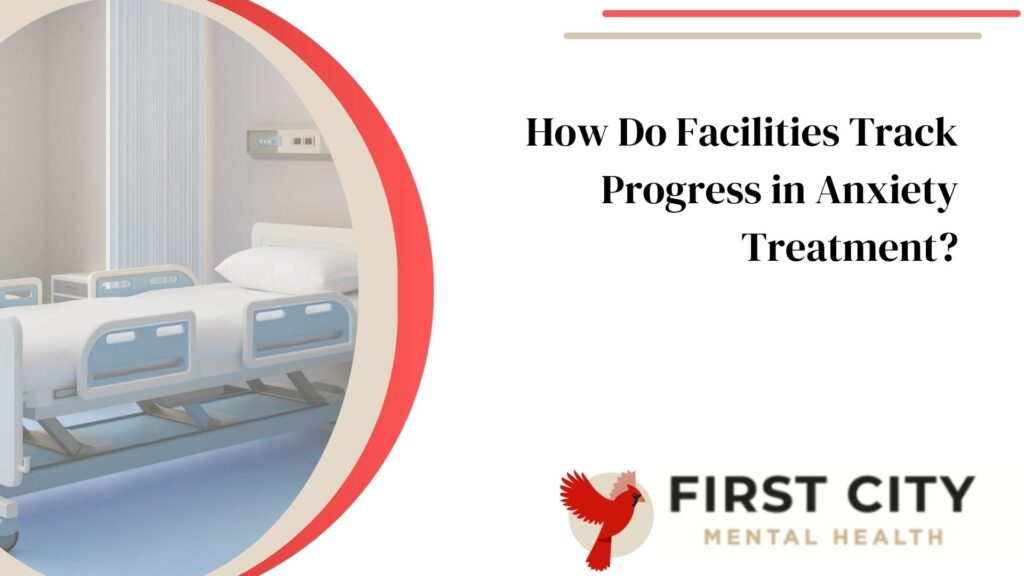
What Are the Pros of Enrolling in an Anxiety Treatment Center?
January 15, 2025
How Do I Enroll in an Adult Partial Hospitalization Program in Indianapolis, Indiana?
January 15, 2025Feeling anxious can be challenging. Many people feel stuck and don’t know where to turn for help. Anxiety disorder treatment centers give hope to those struggling with anxiety.
One key fact is that these centers offer personalized care. They use different methods, like therapy or medication, specific to each person’s needs. This blog will explain how these centers customize treatments, why it’s important, and when therapy and medicine might be combined.
Read on to learn more about managing anxiety!
Key Takeaways
- Personalized Care: Treatment centers tailor plans to fit each person’s needs. This includes therapy methods like CBT and medications.
- Combining Methods: Therapy and medication together often work best. This combination can reduce symptoms more effectively.
- Family Involvement: Family support boosts the healing process. Families learn how to help their loved ones better during recovery.
- Tracking Progress: Facilities check progress regularly. They use surveys, check-ups, and family feedback to see if treatments work.
- Holistic Approaches: Stress management techniques and lifestyle changes are included in treatment plans for better outcomes.
What Treatment Methods Are Used for Anxiety Disorders?
Anxiety treatment center facilities use various methods to help patients. Cognitive Behavioral Therapy (CBT) teaches new ways of thinking and behaving. Dialectical Behavior Therapy (DBT) focuses on balancing emotions, while Eye Movement Desensitization and Reprocessing (EMDR) helps process trauma.
Medications like antidepressants or anti-anxiety drugs can reduce symptoms. Facilities also provide personalized counseling to meet each patient’s needs. Family support through educational sessions is important for understanding the disorder better.
Personalized therapy makes a big difference.
How Do Facilities Customize Anxiety Disorder Treatment Plans for Each Patient?
Facilities use many methods to tailor treatment plans to each patient. They start with a full check-up by licensed counselors, which helps them understand the patient’s needs and diagnosis, such as generalized anxiety disorder.
Based on this, they choose therapy methods like CBT (Cognitive Behavioral Therapy) or DBT (Dialectical Behavior Therapy). Some patients may also need EMDR (Eye Movement Desensitization and Reprocessing).
Medication can be added to help manage symptoms under close watch.
Family support is also key in these plans. Families help boost emotional recovery and understanding. Anxiety treatment centers often teach families how to support their loved ones best. Holistic approaches—like stress management techniques—are also used to find what triggers anxiety in each patient and teach coping skills.
Early intervention is always a priority to improve life quality quickly at any top-rated anxiety treatment center.
Why Is Personalized Treatment Important for Anxiety Management?

Personalized treatment is crucial for anxiety management. It caters specifically to each person’s unique needs. Different methods like CBT, DBT, and EMDR offer individualized approaches best suited to individual patients in the best anxiety treatment centers.
Early intervention with personalized therapy can ease severe symptoms effectively. Family support plays a vital role in the emotional recovery process during treatment. All these steps help ensure the best outcomes for managing generalized anxiety disorder or other forms of anxiety.
When Are Therapy and Medication Combined for Treatment?
Personalized anxiety disorder treatment plans often include combining therapy and medication. These methods work best together to reduce symptoms in generalized anxiety disorder treatment. Cognitive Behavioral Therapy (CBT) and Dialectical Behavior Therapy (DBT) are standard therapies used along with medications.
Outpatient services help mix therapy and medication while keeping daily routines intact. Holistic approaches, like self-care and stress management, also support traditional treatments for anxiety.
Early intervention can prevent severe symptoms, making combination treatment crucial in many cases at the best anxiety treatment centers.
How Do Facilities Track Progress in Anxiety Treatment?

Therapy and medication together can help treat anxiety. To see if treatments work, anxiety disorder treatment facilities track progress closely.
Doctors use surveys to ask patients about their feelings. They score these answers to measure improvement or setbacks. Regular check-ups also help keep track of changes. Therapists may note how often panic attacks occur or if sleep improves.
Family feedback is also important. Families share what they notice at home, which helps give a full picture of the patient’s progress.
Facilities use charts and reports for easy review by all care providers. This way, everyone knows how well the treatment works and can make changes as needed.
What Role Does Family Support Play in Treatment Plans?
Tracking progress helps to adjust treatments. Family support is crucial during anxiety disorder treatment. It offers emotional recovery and boosts overall outcomes.
Involving family members in the process improves home support for those undergoing general anxiety disorder treatment. Educating families can lead to better understanding and a supportive environment in therapy sessions.
Support from friends and family enhances treatment adherence, improving mental health outcomes.
Why Are Lifestyle Changes Included in Anxiety Management?
Lifestyle changes help people stay healthy outside therapy. Therapy sessions teach self-care and ways to manage stress. These tips must be used daily for the best results.
Family support boosts recovery. When used correctly, medication also helps control symptoms. Early interventions make lifestyle shifts even more important for a successful outcome for generalized anxiety disorder treatment.
When Is Cognitive Behavioral Therapy Most Effective?

Lifestyle changes can help general anxiety disorder treatment management. But Cognitive Behavioral Therapy (CBT) plays a key role in treating anxiety disorders. CBT works best early in the treatment process.
It helps people spot and change negative thoughts quickly.
Family support boosts the power of CBT, providing encouragement and aiding recovery. It’s also helpful with other therapies, such as Dialectical Behavior Therapy (DBT) or Eye Movement Desensitization and Reprocessing (EMDR).
Personalized plans that mix therapy, medication, and support services make CBT even more effective. Outpatient services offer flexible scheduling, helping individuals keep up with daily activities while attending sessions.
Final Thoughts
Treatment facilities in Kokomo offer diverse methods for anxiety. They customize plans to fit each patient’s needs. Personalized care improves the chances of success. Therapy and medication can be used together when needed.
Progress is tracked with regular check-ins. Family support is vital for healing from disorders with the help of anxiety treatment therapy.
Seek help today—your well-being matters!






